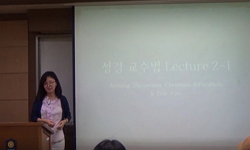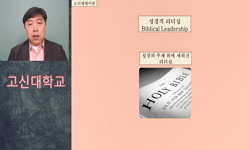이 글은 고려 말기에 역동 우탁의 역학사상의 특성과 역학사적 위상을 해명하였다. 본론에서 그의 역학 사상이 占筮易學에 기본을 두면서도 성리학적 義理易學을 지향하고 있음을 규명하였...
http://chineseinput.net/에서 pinyin(병음)방식으로 중국어를 변환할 수 있습니다.
변환된 중국어를 복사하여 사용하시면 됩니다.
- 中文 을 입력하시려면 zhongwen을 입력하시고 space를누르시면됩니다.
- 北京 을 입력하시려면 beijing을 입력하시고 space를 누르시면 됩니다.

역동 우탁의 역학사상과 역학사적 지위 = Yeokdong Woo Tak's Yixue thought and its status in the history of Yixue
한글로보기https://www.riss.kr/link?id=A109118252
-
저자
엄연석 (한림대학교)
- 발행기관
- 학술지명
- 권호사항
-
발행연도
2024
-
작성언어
Korean
-
주제어
Woo Tak ; symbol numbers ; moral-principle Yixue ; sincerity and reverence ; moral studies ; Seowon. ; 우탁 ; 상수 ; 의리역학 ; 성경 ; 도학 ; 서원.
-
등재정보
KCI등재
-
자료형태
학술저널
- 발행기관 URL
-
수록면
5-45(41쪽)
- 제공처
- 소장기관
-
0
상세조회 -
0
다운로드
부가정보
국문 초록 (Abstract)
이 글은 고려 말기에 역동 우탁의 역학사상의 특성과 역학사적 위상을 해명하였다. 본론에서 그의 역학 사상이 占筮易學에 기본을 두면서도 성리학적 義理易學을 지향하고 있음을 규명하였다. 구체적으로 우탁의 역학 사상은 자연의 象數的 법칙과 인사의 義理的 당위성이 도학적 忠義를 실천하는 것을 통해서 首尾一貫하고 本末始終이 일치하는 특성을 가지는 것임을 살펴보았다. 우탁은 먼저 괘효사의 원시적인 기능으로서 점을 치는 것에 대하여 충분한 이해를 하였다. 중국으로부터 의리역학 이론이 수용되기 이전에 고려에 『주역』이 있었기 때문에 기본적으로 象數와 占筮에 대한 기본적인 이해를 하였다. 동시에 우탁은 정이가 誠敬으로 『주역』 「췌괘」의 괘효사를 해석한 것을 이어 유가적 의리역학적 관점에서 괘효사를 이해하였다. 우탁이 충선왕의 비행에 격분하여 죽음을 무릅쓰면서 간언을 한 것은 의리역학의 관점을 포함하면서 송대 성리학의 실천적 道學이 지향하는 방향이기도 하다. 우탁의 의리역학 사상에 지니는 유학적 역학사적 의미를 다음과 같이 몇 가지로 요약할 수 있다. 첫째는 고려 후기의 상수역학적 경향을 지니고 있던 역학의 흐름에 새로운 의리역학의 전통을 확실하게 구축했다는 점이다. 둘째는 성리학적 수양론과 결합하여 誠敬을 강조함으로써 조선시대 誠과 敬을 중심으로 하는 성리학의 수양론에 커다란 영향을 주었다는 점이다. 셋째는 충절을 실천함으로써 지행합일이 이루어진 의리역학을 지향함으로써 후대 조선시대 道學의 연원을 열었다는 점이다. 넷째, 후대에 학덕과 행적을 기리는 서원을 건립하여 유학의 교육 체계를 구성하는 운동의 단초를 열었다는 점이다. 다섯째는 후대 학자들에게 ‘충절’과 ‘은거’로 ‘殺身成仁’, ‘遯世無悶’, 獨善其身과 같은 실천적 표준과 모델을 제시했다는 점이다. 요컨대, 우탁의 역학사상의 특징을 한마디로 요약한다면 時中을 추구하는 지행합일적 의리역학이라고 할 수 있을 것이다.
다국어 초록 (Multilingual Abstract)
This article clarifies the characteristics of the Yixue thought and status of the Yixue history of Yeokdong Wootak in the late Goryeo Dynasty. In the main subject, it was established that his Yixue thought was based on Jeomseo Yixue(占筮易學), but...
This article clarifies the characteristics of the Yixue thought and status of the Yixue history of Yeokdong Wootak in the late Goryeo Dynasty. In the main subject, it was established that his Yixue thought was based on Jeomseo Yixue(占筮易學), but was also oriented towards Neo-Confucian moral-principle Yixue(義理易學). Specifically, Wu Tak's Yixue thought is consistent and coherent from beginning to end through practicing moral loyalty through the constant laws of nature and the righteousness of human affairs. We have seen that the beginning and end have matching characteristics. Wootak first had a sufficient understanding of divination as a primitive function of Hexagram and lines sentence(卦爻辭). Since the Book of Changes existed in Goryeo before the theory of moral-principle Yixue was accepted from China, people had a basic understanding of symbol numbers and fortune telling. At the same time, Woo Tak followed Jeong Yi's interpretation of Hexagram and lines sentence in 『ChueGwae』 using the sincerity and reverence and understood Hexagram and lines sentence from the perspective of Confucian moral principle Yixue. Woo Tak's remonstrance at the risk of death because he was enraged by King Chungseon's misdeeds includes the perspective of moral righteousness and is also the direction pursued by the practical moral studies of Neo-Confucianism in the Song Dynasty. The Confucian and historical significance of Wootak's idea of moral principle Yixue can be summarized as follows. First, it clearly established a new tradition of moral principle Yixue. in the flow of Yixue that had a tendency towards symbol numbers Yixue in the late Goryeo Dynasty. Second, by combining it with the Neo-Confucian theory of cultivation and emphasizing the sincerity and reverence, it had a great influence on the Neo-Confucian theory of cultivation centered on sincerity and sutra during the Josan Dynasty. Thirdly, he opened the origin of moral studies in the later Joseon Dynasty by pursuing the theory of righteousness and ethics in which the unity of knowledge and action was achieved by practicing loyalty. Fourth, he established a Seowon to commemorate his academic virtues and accomplishments in later generations, opening the way for a movement to form a Confucian education system. Fifth, he presented practical standards and models such as ‘loyalty’ and ‘seclusion’ to later generations of scholars, such as ‘salsinseongin(殺身成仁)’, ‘difference to the world(遯世無悶)’, and self-righteousness (獨善其身). In short, if the characteristics of Woo Tak's Yixue thought can be summarized in one word, it can be said to be a moral-principle Yixue of unity of knowledge and action that pursues the proper timeliness.
동일학술지(권/호) 다른 논문
-
- 퇴계학연구원
- 이승률
- 2024
- KCI등재
-
- 퇴계학연구원
- 이선경
- 2024
- KCI등재
-
16~17세기 조선 유불지식인 정치 실천의 회통성 연구
- 퇴계학연구원
- 박정원 ( Park Jeongwon )
- 2024
- KCI등재
-
- 퇴계학연구원
- 안유경 ( An Yoo-kyoung )
- 2024
- KCI등재




 KISS
KISS







